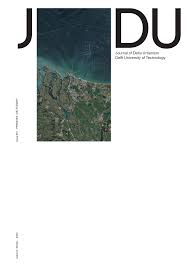Abstract
The present investigation portrays an experimental line of design and relational thinking aimed at establishing critical design premises in relation with the present state of change and crisis (Goddard et al., 2015 and Maxmen 2018). The description of abiotic and biotic shifts within the different realms -atmosphere, water and soil- inform the making of the urban / territorial project so it can contribute to the operationalization and management of the new conditions of life:
Atmosphere talks about the importance of reading the new biophysical conditions of life through the establishment of a land use system of performances for carbon drawdown and new suitability analysis. Water casts light in the regeneration of ecosystems at watershed level through vegetation density strategies -such as aforestation- to reverse desertification and enhance the water cycle via the Biotic Pump (Makarieva & Gorshkov, 2007). Both Water and Atmosphere describe shifting conditions that land on the Soil, the interface allowing for the interaction of systems, where abiotic conditions are translated and de-codified into biotic conditions that the urban project can design with. Therefore, Soil identifies the ground as the element of design, the sustaining infrastructure of all living systems and proposes the transition from current mono-functional land use systems to regenerative systems through vegetation diversity strategies.
The design of the territory of the new modernity, as an inter - multi - disciplinary process, must comprehend and project across the whole gradient of urbanization with the mission to regenerate urban landscapes, that is to say: to regulate atmospheric conditions, manage water patterns, sustain soil health and reconnect stronger culture and nature relations.

This work is licensed under a Creative Commons Attribution 4.0 International License.
Copyright (c) 2020 Taneha T Bacchin, Filippo Lafleur, Isabel Recubenis

